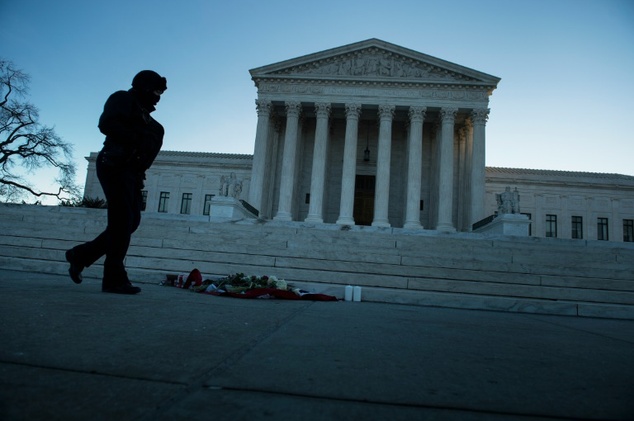-
Tips for becoming a good boxer - November 6, 2020
-
7 expert tips for making your hens night a memorable one - November 6, 2020
-
5 reasons to host your Christmas party on a cruise boat - November 6, 2020
-
What to do when you’re charged with a crime - November 6, 2020
-
Should you get one or multiple dogs? Here’s all you need to know - November 3, 2020
-
A Guide: How to Build Your Very Own Magic Mirror - February 14, 2019
-
Our Top Inspirational Baseball Stars - November 24, 2018
-
Five Tech Tools That Will Help You Turn Your Blog into a Business - November 24, 2018
-
How to Indulge on Vacation without Expanding Your Waist - November 9, 2018
-
5 Strategies for Businesses to Appeal to Today’s Increasingly Mobile-Crazed Customers - November 9, 2018
Supreme Court puts hold on Louisiana abortion clinic law
The U.S. Supreme Court has placed a temporary block on a Louisiana law that some opine could close most of the abortion facilities in the state.
Advertisement
But on February 24th, the 5th Circuit Court of Appeals, which had earlier upheld the Texas abortion law, lifted the judge’s order blocking enforcement of the Louisiana law.
Under the law, abortion clinics must meet the same building standards as ambulatory surgical centers and doctors providing abortion services must have admitting privileges at nearby hospitals.
The legal group representing the clinics says facilities in Baton Rouge and Bossier City already have had to stop providing abortions and a clinic in Shreveport would have had to stop soon as well. A vote in favor of the clinics in Louisiana could signal how the justices will rule on the Texas law.
Ultimately, Friday’s U.S. Supreme Court ruling allowed four Louisiana abortion clinics to reopen.
Pro-abortion demonstrators protest in front of the Supreme Court in Washington, DC, on January 22, 2016, the 43rd anniversary of the Roe v Wade.
The three women justices pushed back on that point, with Justice Kagan highlighting research cited by the plaintiff showing that with fewer than a dozen abortion providers left in the state, more than a million of Texas women will live more than 100 miles away, and many would be even more distant.
“Our Constitution, along with almost half a century of legal rulings, is clear that women have the right to make critical decisions about their life and health without interference from politicians”, Nancy Northup said in a statement. Based on those conclusions, a federal judge had barred Louisiana from enforcing the admitting privileges rule.
These laws are not limited to the South. The Wisconsin Legislature adopted the same requirement, but it was blocked by the 7th Circuit Court of Appeals in Chicago.
Supporters of the Louisiana law say it is necessary to ensure that women having complications from abortions receive continuous care if they require hospitalization. A trial judge blocked the law, saying that such doctors were often unable to obtain admitting privileges for reasons unrelated to their competence and that the law created an undue burden on a woman’s constitutional right to abortion. “We disagree with the court’s unexplained decision”, he said, adding, “we remain confident that we will prevail on the merits”.
The action could suggest the court has greater concerns about admitting privileges requirements than were indicated during Wednesday’s argument in the Texas case.
Separately, the justices also are mulling an emergency appeal from clinics in Louisiana. “We began to see this same tragedy play out in Louisiana before the court stepped in”. Based on the vote margin, Scalia’s (most likely conservative) vote would not have made a difference in the Supreme Court’s ruling.
With the death of Justice Antonin Scalia, it appears the outcome is in the hands of Justice Anthony Kennedy, according to the Associated Press.
Advertisement
For a clue on how the Supreme Court may decide a major abortion case it heard Wednesday, look to its impending decision in a fight over abortion clinics in Louisiana.





























